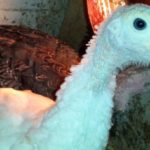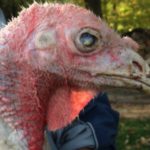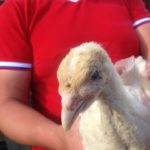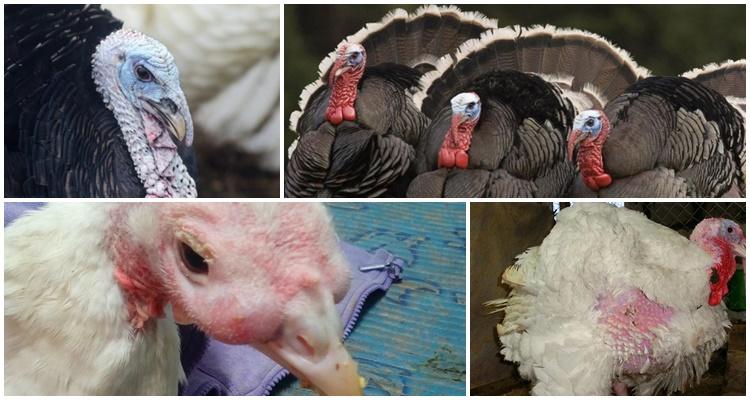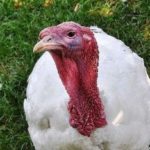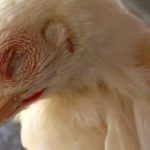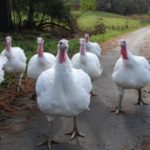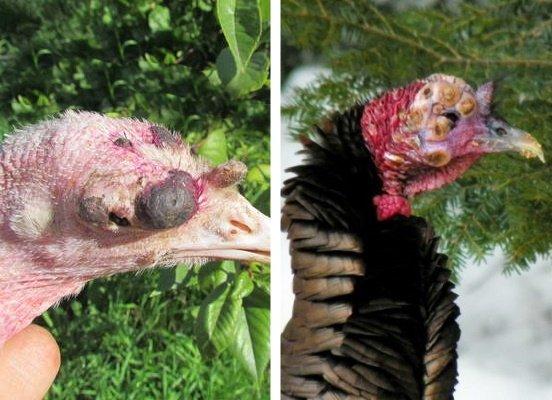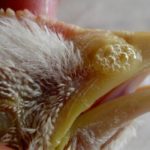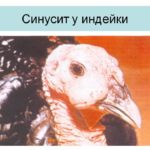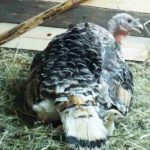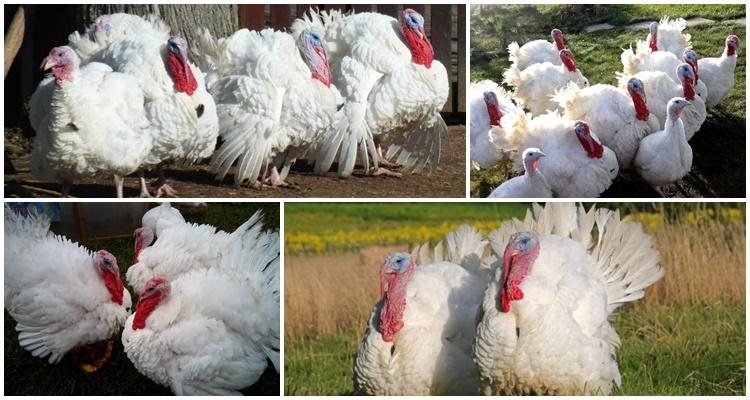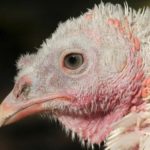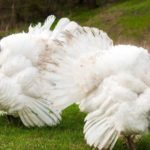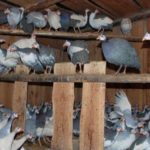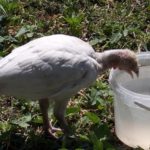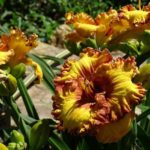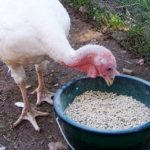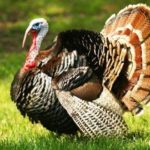Sinusitis is considered one of the most common disorders that affects many turkeys. In veterinary medicine, the pathology is often called respiratory mycoplasmosis. In order to promptly identify the symptoms of sinusitis in turkeys and select treatment, it is important to familiarize yourself with the clinical picture of the disease and know the sources of its occurrence. Medicines and traditional recipes will help to cope with the pathology.
- Description of the disease
- Symptoms of the disease
- Pathogens and causes of appearance
- Diagnostic measures
- How to properly treat sinusitis in turkeys at home
- Medications
- Traditional methods and recipes
- Bird quarantine
- Preventive measures
- Temperature compliance
- Conditions of detention
- Diet
- Cleaning and disinfection
Description of the disease
Respiratory mycoplasmosis, or sinusitis, is an infectious pathology caused by special microorganisms. The causative agent of the disease is a cross between a virus and a bacterium. When they come into contact with the mucous membranes, the pathogens rapidly spread throughout the body, causing damage to the sinuses and respiratory tract. The key danger of the disease is that its symptoms can only appear 10 days after infection. During this time, the pathology can affect the bulk of the livestock.
Pathology can be acute or chronic. It affects turkey poults aged from 2 weeks to 4 months to a greater extent. The maximum number of cases of the disease occurs in autumn and winter, when the birds' immunity is weakened and the supply of vitamins to the body decreases.
Infection with mycoplasmosis is carried out by airborne droplets from an infected bird. Pathology can spread through food, water, household items or tools. If the disease is detected in time, it can be successfully treated. Without treatment, the risk of death is high.
Symptoms of the disease
Pathology can be acute or chronic. Depending on the nature of the disease, certain signs are present. In acute cases, there is copious discharge of mucus from the nose, swelling of the larynx, and wheezing. When sinusitis appears in a chick, its growth rate slows down significantly. With the development of mycoplasmosis, the immune system is significantly weakened. Therefore, a turkey with this diagnosis is more susceptible to respiratory viruses and bacterial infections.
In the chronic form of the pathology, there is a risk of a significant decrease in productivity. At the same time, the birds practically do not increase their body weight and do not lay eggs.Since all products are contaminated, the use of eggs for breeding is prohibited. They are not fertilized and are not suitable for nutrition. Young birds with sinusitis often die.
Pathogens and causes of appearance
The causative agent of mycoplasmosis is considered to be a microorganism that is a cross between a virus and a bacterium. Infection occurs when the pathogen enters the body and reaches the mucous membranes of the respiratory system. After this, it multiplies, which provokes suppuration. As a result, microorganisms penetrate the systemic bloodstream. If this is not prevented, the pathology can become chronic. Causes of infection include:
- Weak immune system. Therefore, chicks and young birds are more susceptible to the disease.
- Stress factors.
- Constant drafts.
- Using infected tools.
- Contacts with infected birds.
- Lack of vitamins A and D.
- Infection of water and food.
- Using eggs from sick individuals.
Sinusitis is transmitted by airborne droplets. Therefore, the disease is characterized by rapid spread. If one bird gets sick, the rest are also at risk. Therefore, infected turkeys should be separated from the rest.
Diagnostic measures
The pathology is characterized by a wide range of symptoms. Therefore, distinguishing it from other ailments is very problematic. Only a veterinarian can make an accurate diagnosis. First of all, it is recommended to distinguish sinusitis from aspergillosis, smallpox, pasteurellosis, and vitamin deficiency.
How to properly treat sinusitis in turkeys at home
To properly treat sinusitis in birds, it is important to consult a veterinarian. The specialist will prescribe medications. In addition to such therapy, it is permissible to use folk recipes.
Medications
To cure the pathology, it is worth using antibiotics. They are recommended to be injected directly into the cleaned sinuses. If you don’t have the skills, you won’t be able to do it without the help of a veterinarian. Violations in therapy can lead to aggravation of the situation. Most often, the following remedies are used for this diagnosis:
- “Tylosin-200” - for the treatment of turkeys, it is recommended to mix 5 grams of the product with 10 liters of water and feed the birds for 5 days.
- “Farmazin-500” - to eliminate pathology, it is recommended to use 1 gram of the drug per 1 liter of water and give the solution to birds twice a day for 10 days.
Farmazin-500 can also be injected into the sinuses. To do this, use 2 milligrams of the product. The use of such substances has a powerful effect on the immune system, so you cannot use them yourself.
Traditional methods and recipes
Treatment of a runny nose with folk remedies does not produce the desired effect. To eliminate the disease, antibiotics must be used. At the same time, folk recipes help strengthen the immune system and increase resistance to pathologies. This helps stimulate healing.
For maintenance treatment it is worth using the following means:
- Infusion of strawberry berries and leaves. It helps strengthen the immune system of birds, slightly reduces temperature parameters, and reduces nasal discharge. It is recommended to give this product to turkey poults instead of water 3 times a day.
- Chamomile decoction.This substance successfully copes with the symptoms of inflammation in the nose, reduces swelling, and helps strengthen the immune system. It should be given several times a day.
Bird quarantine
An infected bird poses a danger to the rest of the flock. Therefore, sick individuals should be immediately separated from healthy ones. This helps to avoid the spread of infection and death of birds. Typically, the duration of quarantine is at least 3 weeks. At this time, the bird needs to provide optimal conditions:
- Create a ventilation system.
- Change the litter every day. The room should be frequently disinfected and wet cleaned.
- Give birds plenty to drink. In this case, the water must be clean and at room temperature.
- Review your diet. To prevent weakened immunity, it is recommended to use vitamins and minerals. Also suitable for this purpose are herbal infusions - chamomile, wormwood, nettle.
- Control the temperature in the room. It should stay at +20-25 degrees. It is important to ensure that there are no drafts in the poultry house.
Preventive measures
It is much easier to prevent the development of pathology than to deal with its consequences. For prevention, it is worth taking a number of measures.
Temperature compliance
The temperature regime is selected taking into account the age of the birds:
- In the first 7 days of life, the room temperature should be +32-34 degrees.
- For 8-14 days, the temperature should be gradually reduced. It should be +28-32 degrees.
- On days 15-21, the temperature parameters are set at +26-28 degrees.
- From day 22 the temperature can be +18 degrees.
Conditions of detention
Living conditions are of great importance for the prevention of sinusitis. It is recommended to follow these rules:
- There should be no more than 10 birds 8 weeks old per 1 square meter. As for adult turkeys, their number should not exceed 3.
- It is strictly prohibited to keep turkeys with other species of birds.
- The litter in the poultry house needs to be changed every day.
- It is important to ensure good ventilation. There should be no drafts.
Diet
A quality diet is important. It should contain a sufficient amount of vitamins and minerals. To do this, birds should be given greens and fresh vegetables. It is recommended to include grains in the menu - corn, wheat, oats. Birds should also be given legumes and root vegetables.
Cleaning and disinfection
Regular cleaning will help prevent the spread of disease. If an infected bird is identified, it is important to disinfect the premises. To do this, use a solution of slaked lime or potassium permanganate. Sinusitis is a dangerous pathology that is very common among turkeys. To cope with the disease, it is worth using medications. To improve your immune system, you should use traditional recipes.

